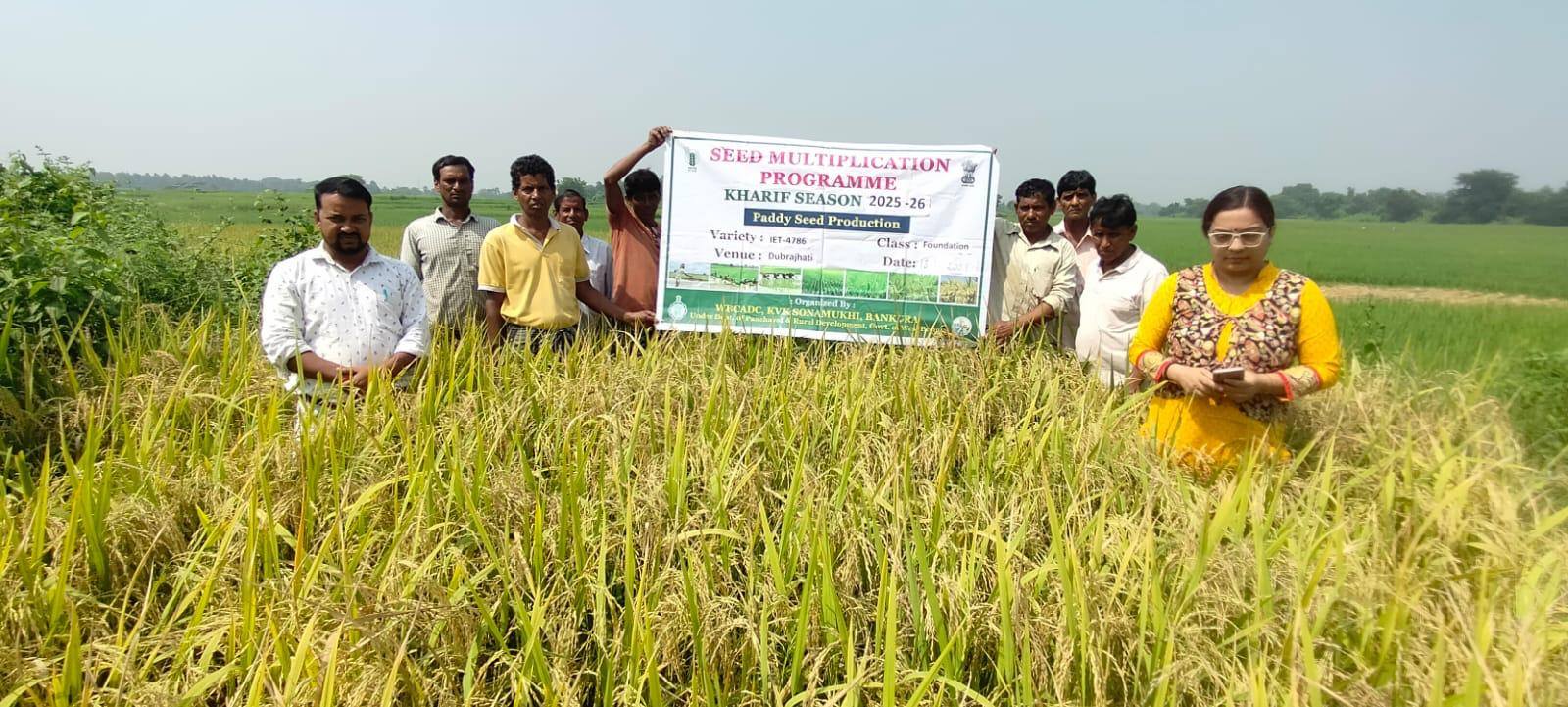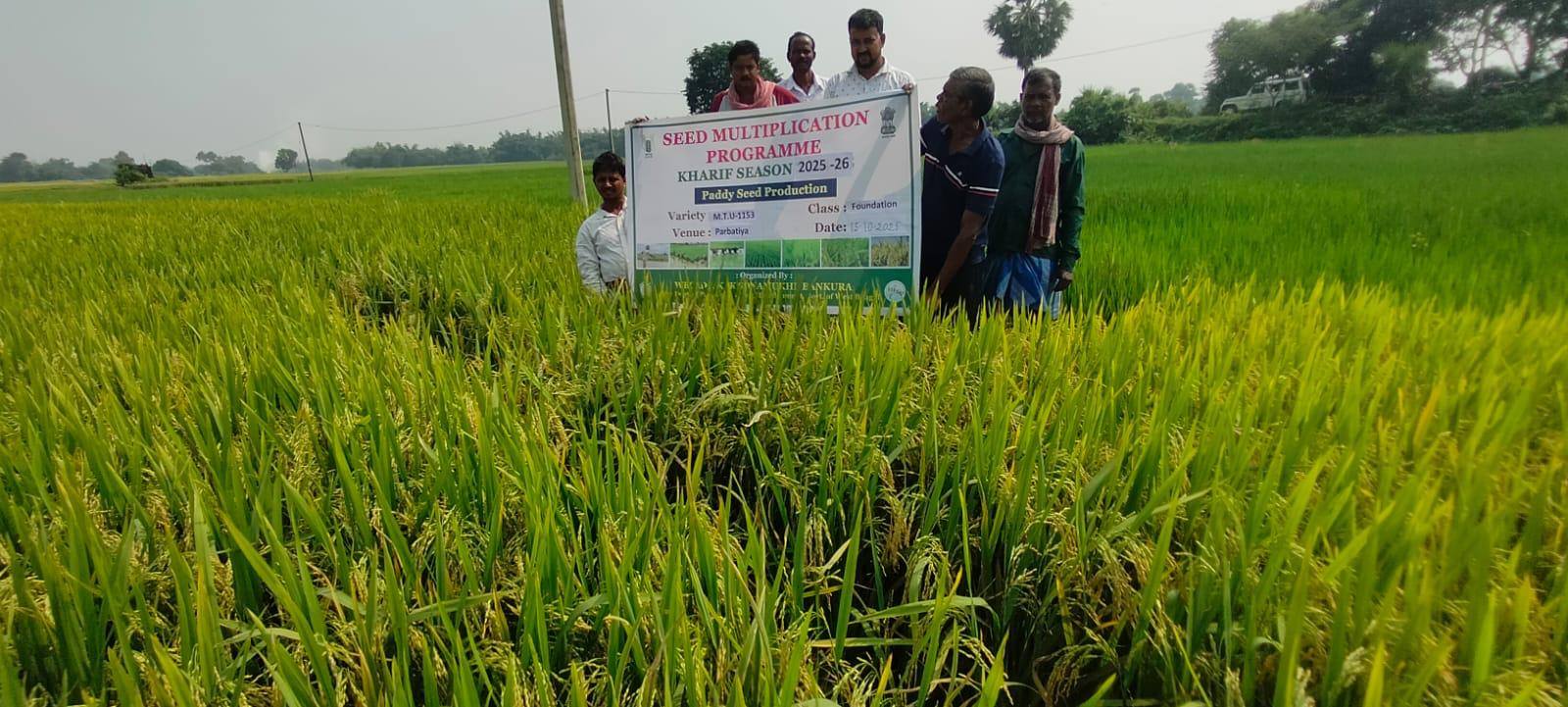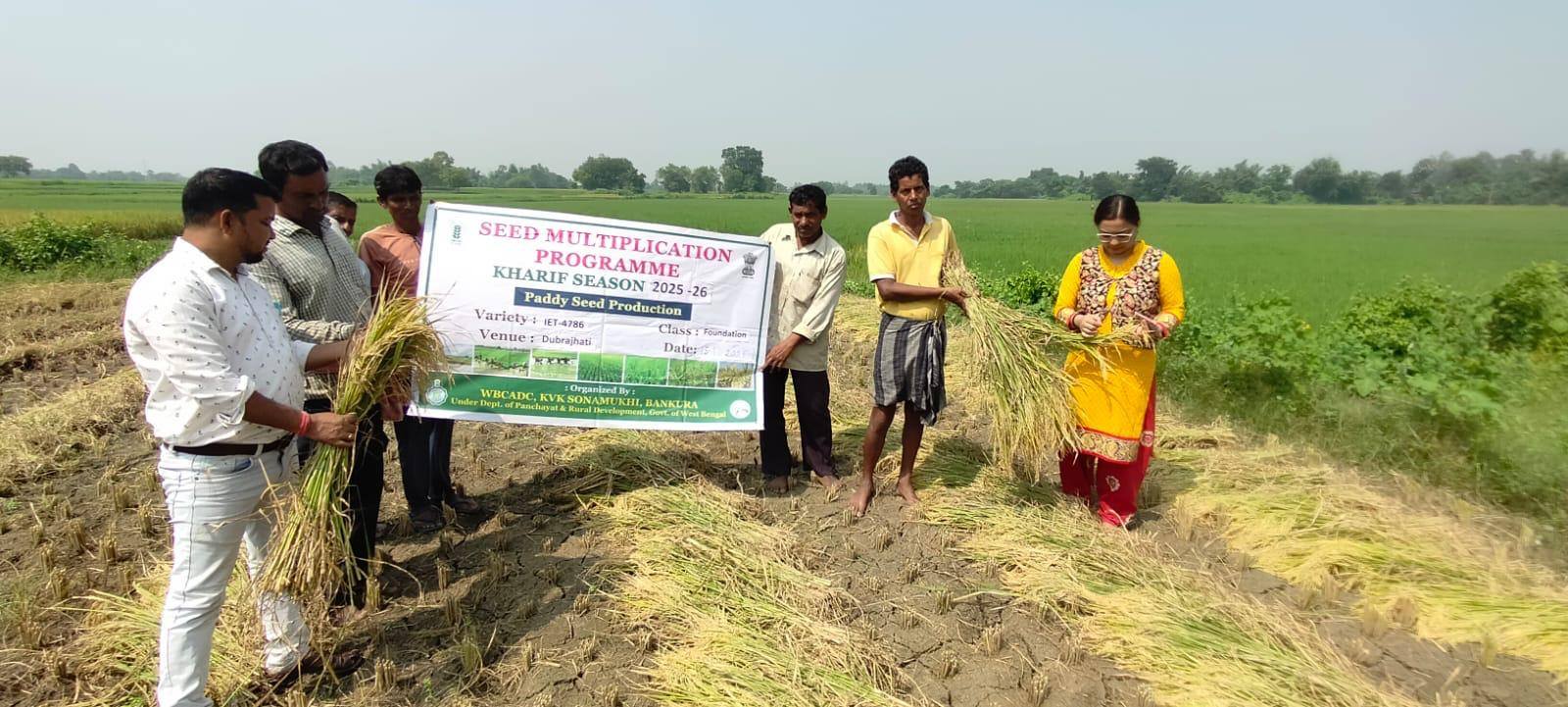Seed multiplication programmes: a vital link in agricultural development
Seed multiplication programmes play a crucial role in ensuring that farmers have access to high-quality seeds of improved crop varieties, a fundamental requirement for boosting agricultural productivity, ensuring food and nutritional security, and promoting economic growth.

What is seed multiplication?
A seed multiplication program is a structured process designed to increase the quantity of high-quality seeds, particularly from newly developed or improved varieties, for wider distribution and use by farmers. These programs aim to ensure a reliable supply of quality seeds to support agricultural production and enhance crop yields.
Stages of Seed Multiplication:
- 1. Breeder Seed: Produced by the originating breeder, genetically pure and used to produce foundation seed.
- 2. Foundation Seed: Progeny of breeder seed, genetically pure and serves as the source for producing registered and certified seed.
- 3. Certified Seed: Progeny of foundation or registered seed, certified by agencies as suitable for raising a good crop, and meeting specific standards for purity and quality.

Importance of seed multiplication programmes
- Sustainable Agriculture: Ensures farmers have access to healthy seeds of improved varieties, crucial for increasing yields and promoting sustainable agricultural practices.
- Increased Productivity: Studies suggest that quality seed alone can contribute significantly to crop production, with some studies showing up to 100% yield improvement.
- Biodiversity Enrichment: Can help in making available indigenous and diverse seed varieties that may otherwise be lost, thereby enriching local biodiversity.
- Income Generation for farmers: Farmers participating in such programs can be compensated for their efforts in seed production, serving as an additional income source.

Components of successful programmes
Effective seed multiplication programmes typically involve the following elements:
- Strong Research and Development: Continuous breeding programs to develop new and improved crop varieties that address local needs and adapt to changing conditions.
- Efficient Seed Multiplication and Distribution Networks: Mechanisms for the systematic and timely production and distribution of quality seeds, involving public and private sector actors, cooperatives, and farmer groups.
- Quality Assurance: Implementing and enforcing seed certification standards and procedures to ensure genetic purity, physical purity, germination rate, and seed health.
- Capacity Building and Training: Providing farmers and seed producers with the knowledge and skills necessary for effective seed production, management, and storage.
- Supportive Policies and Incentives: Government policies that encourage seed production, including financial assistance, subsidies, and fair pricing mechanisms.
- Infrastructure Development: Investing in seed storage, processing, and testing facilities to maintain seed quality and facilitate efficient operations.

Challenges and opportunities
While vital, seed multiplication programs face several challenges, particularly in developing countries, such as:
- High costs associated with seed multiplication and distribution.
- Lack of adequate infrastructure and access to technology.
- Impact of climate change on seed production and quality.
- Stringent regulatory frameworks and compliance issues.
However, these challenges also present opportunities for innovation and collaboration. By focusing on farmer-centric approaches, leveraging digital technologies, promoting partnerships between public and private sectors, and investing in research and development, seed multiplication programs can be strengthened and made more resilient, ensuring a sustainable future for agriculture.
Production Report of KVK Bankura (Kharif 2024-25)
| Sl No. |
Name of Crop |
Variety |
Class of Seeds |
Production
(in MT) |
| 1 |
Groundnut |
Dharani |
Certified |
0.015 |
| 2 |
Paddy |
CR Dhan-311 |
Foundation |
0.11 |
| 3 |
Paddy |
Bidhan Suruchi |
Foundation |
0.38 |
| 4 |
Paddy |
Sukumar |
Foundation |
0.09 |
| 5 |
Paddy |
IET-4786 |
Foundation |
0.19 |
| 6 |
Paddy |
MTU-1010 |
Foundation |
0.16 |
| 7 |
Paddy |
IR-36 |
Foundation |
0.29 |
| 8 |
Paddy |
GB-3 |
Foundation |
0.16 |
| 9 |
Paddy |
GB-1 |
Foundation |
0.28 |
| 10 |
Paddy |
MTU-7029 |
Foundation |
0.43 |
| 11 |
Paddy |
CR Dhan-800 |
Foundation |
0.23 |
| 12 |
Paddy |
MTU-1153 |
Certified |
7.65 |
| 13 |
Paddy |
Dhruba |
Certified |
1.95 |
| 14 |
Paddy |
Dhiren |
Certified |
4.0 |
| 15 |
Paddy |
MTU-7029 |
Certified |
60.55 |
| 16 |
Paddy |
CR Dhan-800 |
Certified |
44.60 |
| 17 |
Paddy |
IET-4786 |
Certified |
0.541 |
| 18 |
Paddy |
Bidhan Suruchi |
Certified |
0.715 |
| 19 |
Paddy |
GB-1 |
Certified |
7.85 |
| 20 |
Paddy |
GB-3 |
Certified |
4.95 |
| 21 |
Paddy |
MTU-1010 |
Certified |
0.7 |
| 22 |
Paddy |
Lal Badsah |
TL |
0.035 |
| 23 |
Paddy |
Gabindabhog |
TL |
0.065 |
| 24 |
Ragi (Fingermillet) |
Indravati |
TL |
0.11 |
| TOTAL |
136.051 |
Seed Processing Machine installed at KVK Sonamukhi for Seed Multiplication Programme.











